The digital transformation is evident across all spheres of public and private services, with significant involvement from Meta and its tradition and expertise in making the world more digital. Meta’s experience secured victory in a bidding process for providing software services with agile practices, supporting the adaptation and implementation of the eproc system to drive the digital transformation of the Court of Justice of Rio Grande do Sul (TJ-RS). The court faced two major challenges: the implementation of the electronic process system, eproc, and the digitization of a physical collection representing 75% of the total state holdings.
“The contract’s focus was on developing software in an agile cell regime specifically for eproc, one of the key systems of the state judiciary,” says Antonio Braz, Director of Information Technology at TJ-RS.
“Eproc is the primary judiciary system through which all processes are handled. Parties and lawyers can remotely and digitally track the entire legal process through the court’s website. Another crucial project was the digitization of the physical collection, involving over 2 million processes transformed into eproc. Meta facilitated the integration between the legacy system and the new electronic process system,” recalls Braz. The goal was achieved, and now 90% of the court’s processes are electronic.
Meta’s flexibility and customer-focused DNA were crucial for the project’s execution. “As the project was really vast, we divided the state of Rio Grande do Sul into five areas. We needed a unique system for electronic process integration, which is eproc. Facing this challenge, we turned to Meta to find the best solution, creating a bridge system to serve all these entities and link it with the electronic process. Additionally, the system had to integrate with our legacy system,” says Braz. Meta was responsible for acquiring, implementing, and customizing the Sysged software to meet integration requirements with eproc and physical process systems, considering the needs of various entities and providing management tools.
Roberta Reinehr, Meta’s Head of Government, highlights the diversity of professional profiles and the number of people involved as a unique challenge. “Over 20 professionals worked throughout the contract period, including PHP and Java developers, BI analysts and systems analysts. We contributed to data processing, supported innovation with data, and provided a Python developer to address a specific client need,” says Roberta.
Meta’s experience with agile methodologies was also crucial for the success of the eproc implementation project. The company understands that any digital transformation is a cultural change process. When processes change, they require a different level of engagement from teams, impacting culture. Antonio Braz notes that Meta brought essential resources for this transition. “When the project started with Meta, we were still developing agile methodologies within our teams. The court has 42 agile teams in its IT area, and the maturity level was low at that time. Through the partnership and internal development, with Meta’s strength, we significantly accelerated our implementation of agile methodologies and multidisciplinary team aspects. We were in the process of transforming our organizational structure, creating the Special Projects Directorate specifically for innovation and strategic projects. The partnership helped us a lot because, in areas like AI and automation, we had few people at that time and needed collaboration to boost some prototypes and projects that are now part of our electronic process structure,” says Braz.
The successful eproc implementation, with Meta professionals collaborating with TJ-RS teams, propelled the digital transformation process in the RS Judiciary. According to data from the Judiciary’s CNJ (National Council of Justice) studies, electronic process proceedings are up to 80% faster than physical proceedings. “This speed gain is crucial. Whenever you talk to a citizen and ask what they expect from justice, they respond that the conflict be resolved as quickly as possible. This digital transformation process, focused on the implementation of the electronic process system and the digitization of physical processes, brings this direct benefit to the citizen and society as a whole,” celebrates Braz.
“Whenever you talk to a citizen and inquire about their expectations from the justice system, their response is that conflicts should be resolved as quickly as possible. This is where the digital transformation process, centered around two pillars – the implementation of the electronic process system and the digitization of physical processes – directly brings this benefit to the citizen and the entire society.”
Antonio Braz, Director of Information Technology at TJ-RS



